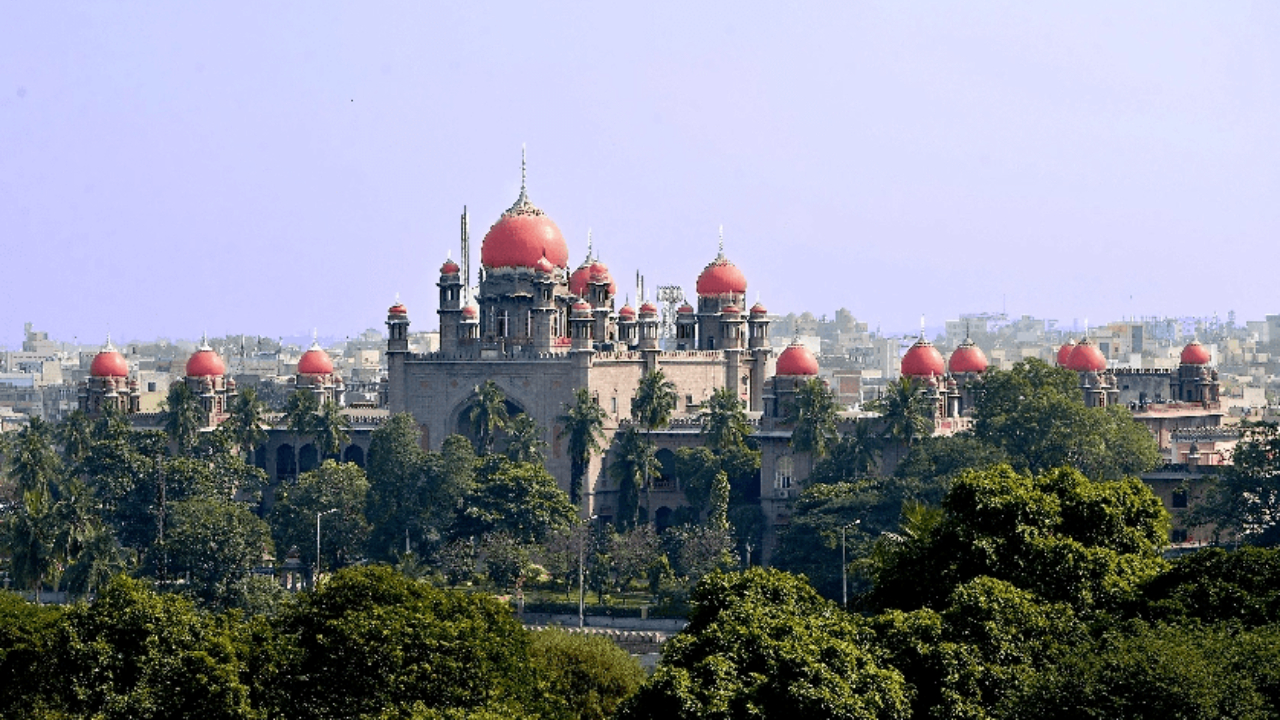The court directed the state government to file a detailed counter-affidavit within six weeks on all issues concerning BC reservations and sub-categorisation.
Published Nov 28, 2025 | 5:26 PM ⚊ Updated Nov 28, 2025 | 5:26 PM

The Telangana High Court. (Official website)
Synopsis: The court pointed out that Section 285-A of the Telangana Panchayat Raj Act, 2018, under which reservations are now being provided, was inserted years ago, and elections were successfully conducted in 2019 without any challenge to the absence of sub-categorisation.
The Telangana High Court on Friday, 28 November, refused to stay the ongoing gram panchayat election process, saying it cannot interfere once the election notification is issued and the machinery is set in motion.
A division bench of Chief Justice Aparesh Kumar Singh and Justice GM Mohiuddin was hearing a batch of writ petitions challenging Government Order Ms No. 46 dated 22 November 2025.
The order has fixed reservations for sarpanch and ward member posts under the existing “old system” — capping reservation at 50% — based on the rotational formula followed in previous elections.
The petitioners, representing Backward Classes (BC) associations, sought the quashing of GO 46 and a stay on the entire election process. They contended that despite the dedicated BC Commission submitting its report on 20 November 2025, the government had neither made the report public nor disclosed caste-wise population data.
They said that the GO completely ignored mandatory sub-categorisation of BCs into A, B, C and D groups, thereby denying proportionate representation to the most disadvantaged sections within the BCs.
The petitioners also argued that continuing with the elections under the present GO would affect the interests of the Most Backward Classes (MBCs). They urged the court to stay the polls until the government implemented proper sub-categorisation and placed the Commission’s empirical data on record.
The bench, however, pointed out that the same Section 285-A of the Telangana Panchayat Raj Act, 2018, under which reservations are now being provided, was inserted years ago, and elections were successfully conducted in 2019 without any challenge to the absence of sub-categorisation.
The court asked why the petitioners had approached it only after the election notification and commencement of the process instead of raising the issue earlier.
As the process for the election has already started, it cannot be stopped, the bench observed, reiterating the settled principle that courts do not normally interfere once the electoral clock starts ticking.
While declining an interim stay, the court directed the state government to file a detailed counter-affidavit within six weeks on all issues concerning BC reservations and sub-categorisation.
Petitioners will have two weeks thereafter to file their rejoinder. The matter has been posted for final hearing after eight weeks.
The state government defended GO 46, stating that reverting to the pre-existing reservation roster (with BC quota remaining between 18-23% in most places) was necessary to protect nearly ₹3,000 crore central funds meant for panchayats and to prevent further delay in long-pending village polls.
With the High Court clearing the last major legal hurdle, the Telangana State Election Commission’s three-phase schedule for over 12,750 Gram Panchayats and 1.13 lakh wards remains on track, with nominations already underway in several districts.
(Edited by Majnu Babu).
